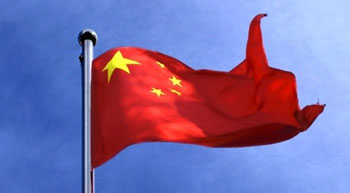TEHRAN, Aug. 1 (Xinhua) -- Iran's Supreme Leader Ayatollah Ali Khamenei on Monday urged the regional countries and governments not to rely on the United States to tackle their issues, saying that Washington is not trustable.
The United States is "the producer or booster of the regional problems," rather than being a savior, Khamenei was quoted by Press TV as saying in a meeting with thousands of Iranians from several provinces in Tehran.
"The regional nations are able to solve their problems. We draw the attention of the regional governments to the point that the United States is unreliable, and it considers the Arab states as tools to serve Israel's existence and its interests," he said.
The experience of Iranians about the failure of the United States in the fulfilment of its obligations pertaining to a nuclear deal showed that it can never be trusted, Khamenei added.
"The United States has violated its obligations (over the nuclear deal) and is busy destroying Iran's economic ties with other countries," he said.
"The oppressive sanctions (against Iran) were supposed to be lifted quickly so that it could leave its (positive) impact on the people's lives," he said. "However, after six months (following the implementation of the deal) there has been no tangible change in the lives of the people."
The nuclear deal, reached between Iran and world powers in July last year, was implemented in January. The deal saw Iran scrap major part of its nuclear program in return for the removal of Western and international sanctions.
The United Sates still maintains sanctions on Iran over alleged violations of human rights and support of terrorism, which Iran denies.
Also, Washington has recently blacklisted some Iranian and foreign entities for alleged involvement in Iran's missile program.
Khamenei also accused Saudi Arabia of committing a "grave crime" by bombing innocents in Yemen with the help of the United States.
"Raiding Yemen, uninterrupted bombing of homes, hospitals and schools, and the killing of children are a grave crime of Saudi Arabia, which is done by the supply of the arms and the green light of the United States," he said.
Khamenei also described the recent negotiations of Saudi Arabia with Israel as a "dagger from the behind" of the world's Muslims and said that "Saudi relations with Israel are a big sin and a treason."
In building Saudi ties with Israel, "the United States has played a role, as the Saudi officials are obsessed by the whims of the Americans," he said.
The Iranian leader also said that Saudi Arabia has raided Bahrain with the help of the United States.
Khamenei also criticized what he described as the backtracking of United Nations Secretary-General Ban Ki-moon on condemning alleged Saudi atrocities against Yemeni children.
The UN chief on June 9 strongly criticized Saudi Arabia and its allies for putting "undue pressure" on the world body in order to seek their removal from a blacklist for overwhelmingly violating children's rights in Yemen.
In his first public remarks about the uproar, Ban said he decided to temporarily take Saudi and some Arab monarchies off the blacklist of children rights violators in Yemen after they threatened to cut off funding UN humanitarian programs.
Khamenei also commented on Turkey's recent political developments, saying that "there is a strong accusation against the United States of being involved in Turkey's coup and, in case this is proved, it would be a big disgrace for the United States."
Although Ankara has good relations with Washington and is its regional ally, it is mistreated by the United States since Turkey's government has Islamic tendencies, Khamenei said.
Following the failure of the coup attempt, "the United States became hated in the eyes of the Turkish people," he said, noting the presence of anti-U.S. sentiment in Syria and Iraq.
The Iranian leader called for "unity among Muslim nations and governments" by "resisting the plots of the United States and some of its European allies."










